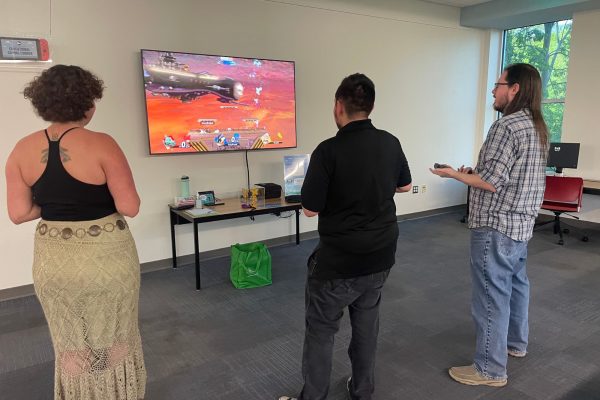Vote postponed for new Georgia Southern academic structure
May 10, 2017
The Consolidation Implementation Committee (CIC) postponed a vote regarding a new academic structure at today’s consolidation meeting due to concerns and opinions voiced by GS and Armstrong State University (ASU) faculty members.
If approved at a future meeting, the consolidated GS would consist of nine colleges: Allen E. Paulson College of Engineering and Computing, College of Arts and Humanities, College of Behavioral Sciences, College of Business, College of Education, Don and Cindy Waters College of Health Professions, Jiann-Pin Hsu College of Public Health, College of Science and Mathematics and the J.N Averitt College of Graduate Studies.
The two new colleges would be the College of Arts and Humanities and College of Behavioral Sciences, which would be the result of dividing the current College of Liberal Arts and Social Sciences (CLASS) at GS.
The proposal would also combine both GS’ and Armstrong State University’s Colleges of Education, Health Professions and Science and was initially suggested by an organizational working group (OWG)
Wayne Johnson, professor of engineering studies at ASU, expressed concern regarding students and travel.
“We don’t want students to have to travel between campuses to get access to administrative support or faculty,” Johnson said. “If we can come up with a creative idea on how to figure that piece out, then maybe this thing can end up being beneficial, notwithstanding the fact that we’re losing our institution as Armstrong faculty.”
GS President Jaimie Hebert suggested that opposers to the current proposed structure should submit their own structure ideas by May 17 before the next meeting.
Nipuna Ambanpola, the incoming SGA president at Armstrong State University, it’s glad that Hebert is allowing the recommendation to be discussed in further detail.
“I respect the fact that President Hebert set it back and gave the opportunity to, if anybody wants to send in an alternative organizational chart, now they can,” Ambanpola said. “I really respect that, because the challenge was that the faculty was not informed. The discussion was not taken forward, so now they have the opportunity to do that.”
According to wjcl.com, Hebert stressed that a decision on that date is necessary because if a decision on an academic structure is not made then, the consolidation process could be slowed down too much to be completed by September 1.
“As long as we collectively consider ourselves victims of consolidation, students will consider themselves victims,” Hebert said.
According to GS Provost Jean Bartels, no programs so far will be eliminated and most, if not all programs, will remain the same until 2022.
English professor and CIC member Richard Flynn believes the CIC will be ready to make a decision regarding the building during the next meeting.
“I expect them to make a decision next time and I’ll have to live with that decision. I’m just glad that, now, we’re able to provide more input and get people to listen to our concerns,” Flynn said. “Our main concern is having this announced to us as accomplished and not having been consulted in the process.”
The CIC will vote and have more discussion at their next meeting on May 24 from 10 a.m. to 12 p.m. at Armstrong State University.
If you have feedback regarding anything occurring during the consolidation process, email either consolidation.questions@armstrong.edu for ASU or consolidation@georgiasouthern.edu for GS.
For a full schedule of the meetings, click here.
Julia Fechter and Tandra Smith contributed to this report.











